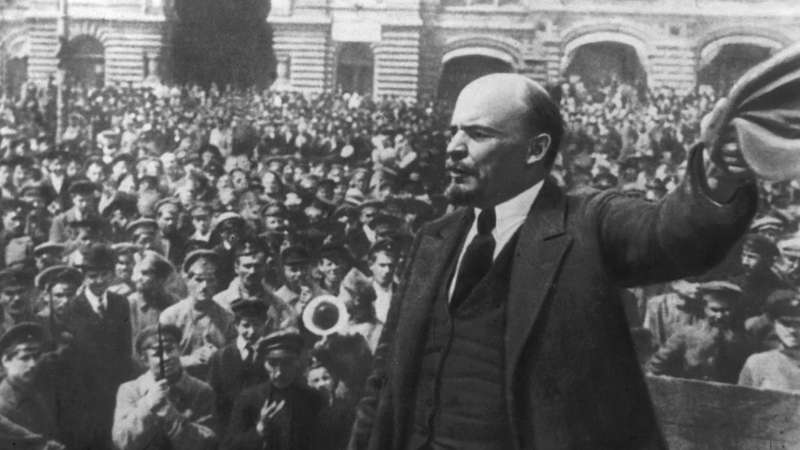On this day in 1924, revolutionary Vladimir Lenin died after a series of strokes. Following his death, his wife Krupskaya circulated "Lenin's Testament", a letter in which he criticized Party leadership and made suggestions for the future.
The majority of the Testament had been dictated by Lenin to his secretary, Lidya Fotieva, on December 25th, 1922, with a postscript added on January 4th, 1923, approximately a year before his death.
In the letter, Lenin expressed concerns over the stability of the Central Committee, and by extension the Communist Party, writing "Our party rests upon two classes, and for that reason its instability is possible, and if there cannot exist an agreement between such classes its fall is inevitable...I have in mind stability as a guarantee against a split n the near future, and I intend to examine here a series of considerations of a purely personal character."
Lenin goes on to state that the personal relationship between Stalin and Trotsky could cause such a split: "I think that the fundamental factor in the matter of stability – from this point of view – as such members of the Central Committee as Stalin and Trotsky. The relation between them constitutes, in my opinion, a big half of the danger of that split..."
In the letter's postscript, dated January 4th, Lenin calls Stalin "rude" and recommends Party members to find another General Secretary, "another man who in all respects differs from Stalin only in superiority – namely, more patient, more loyal, more polite and more attentive to comrades, less capricious, etc."
After, Lenin's death, his surviving widow, Nadezhda, began circulating the document and attempted to present it at the 13th Congress. By a vote of 30 to 10, party leadership refused to have the document read to the congress. The Testament was, however, published by anti-communists; the full English text of Lenin's testament was published as part of a 1926 New York Times article.
Bill Bland, a Marxist-Leninist historian, notes that the contents of the letter mark a striking reversal to Lenin's previous assessment of both Stalin and Trotsky. Stalin had been elected General Secretary of the Central Committee in April 1922 on Lenin's proposal. While Lenin praises Trotsky as the "the most able man in the present Central Committee" in the letter, Lenin had previously referred to Trotsky as "Judas Trotsky" and "swine".
Historian Stephen Kotkin argued that the evidence for Lenin's authorship of the Testament is weak and suggested that the document could have been created by Krupskaya, although other historians, such as Isaac Deutscher and Dmitri Volkogonov, accepted its legitimacy. Trotskyist journal The New International noted in 1935 that Stalin himself acknowledged Lenin as the author in a 1927 speech.
